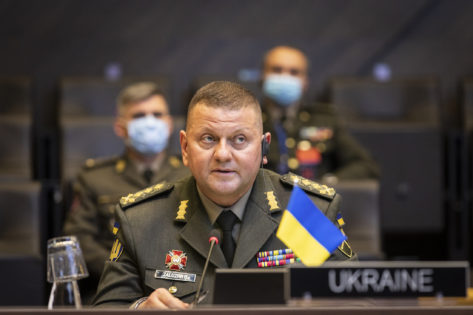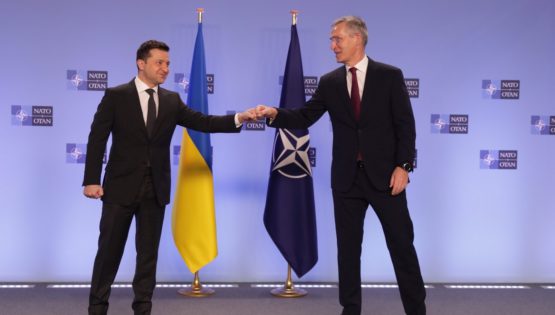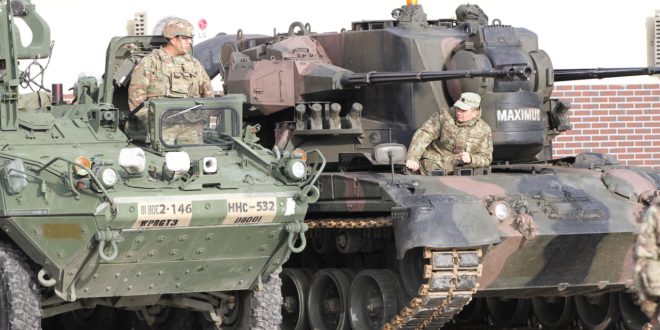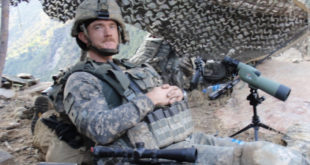Maybe Putin Decided to Build Back Better? Or maybe he is calling Biden’s bluff as the failing U.S. Commander in Chief, SecDef itch for another Wag the Dog War?
Two conflicting stories today. First from DOD’s David Vergun:
“Over the last couple of days, Russian President Vladimir Putin has added additional military capability along his border with Ukraine, as well as in the Belarus area that borders Ukraine, said Pentagon Press Secretary John F. Kirby, who briefed the media today.
Among those added assets, he said, are combined arms capabilities that include: artillery; air and missile defense; landing craft in the Black Sea; infantry; armor; offensive air; special operations; logistics and sustainment; cyber; and intelligence, surveillance and reconnaissance.
The United States is being very transparent with Kyiv about its intelligence assessments of those Russian forces, he said.
Russian Foreign Minister Sergeĭ Lavrov seemed to indicate earlier today that he still thinks there’s room for diplomacy, Kirby said. “We would welcome a pursuit of that path by the Russians, because we, too, believe that there still should be and can be a diplomatic path forward.”
Should Putin decide to invade, many Russian and Ukrainian lives would be lost, Kirby said. Russia can deescalate immediately and take a diplomatic path forward. “It’s within Mr. Putin’s power to make the right decision now. And obviously, we hope to see him do that.”
Other multiple reports include one from Haaretz which quotes Putin, the master Chess Player:
“US Credibility Collapse: Russian Troops Returning After Exercises…Like They Said Not Getting Involved In Ukraine Is Not A “Pro-Russian” Position — It’s Pro-American!-Ron Paul.
“President Vladimir Putin said on Tuesday that Russia does not want a war in Europe, but described the situation in east Ukraine’s breakaway regions as “genocide” and called for the conflict there to be resolved through the Minsk peace progress.
“At a joint news conference after talks with German Chancellor Olaf Scholz, Putin said Russia had decided to partially withdraw troops from near Ukraine and saw some room for further discussion with the West on Moscow’s security demands.”
“President Vladimir Putin said on Tuesday that Russia does not want a war in Europe, but described the situation in east Ukraine’s breakaway regions as “genocide” and called for the conflict there to be resolved through the Minsk peace progress.
“At a joint news conference after talks with German Chancellor Olaf Scholz, Putin said Russia had decided to partially withdraw troops from near Ukraine and saw some room for further discussion with the West on Moscow’s security demands.
There are many reasons for Biden to Wag the Sog other than failures at home: Hillary and the Durham Dossier and Hunter Biden and the Ukraine connection,
Showdown: U.S, to Putin, why are you messing with Ukraine when you should be Building Back Better?
Background
State: The U.S. has laid out clear principles ahead of talks with Russia. First, we will not commit to anything about Europe without Europe. Second, any discussions must be reciprocal. Third, genuine progress can only take place in a climate of de-escalation.

Russia has created this crisis out of whole cloth and will have to justify to its people why it is stoking a potentially very bloody & costly conflict for Russia, rather than focusing on its own citizens’ health and on Russia’s own significant challenges in building back better. Under Secretary Victoria Nuland@UnderSecStateP·Jan 12
We have been telling you to back off or else for months, says State Department to Putin:
“We are absolutely committed to the principle nothing about Ukraine without Ukraine, just as we are fully committed to the principle nothing about Europe without Europe.”
Secretary of State Tony Blinken, January 7, 2022
The United States, along with its Allies and partners, has underscored its readiness to impose significant costs on Russia if it takes further military action against Ukraine. At the same time, we have stressed our preference for de-escalation through diplomacy. The United States laid out clear principles ahead of talks with Russia. First, we will not commit to anything about Europe without Europe. Second, any discussions must be reciprocal. Third, genuine progress can only take place in a climate of de-escalation.
The United States has approached this week’s diplomatic engagements with Russia – in the bilateral Strategic Stability Dialogue, the NATO-Russia Council, and the Organization for Security and Cooperation in Europe (OSCE) – closely aligned with our European Allies and partners, including Ukraine, after extensive consultations. In recent weeks, President Biden has spoken to leaders across Europe. Officials across the U.S. government – including at the National Security Council, State Department, Defense Department, Treasury Department, Energy Department, and U.S. Agency for International Development – have engaged frequently with their European counterparts.
Highlights of the Biden Administration’s close coordination with Allies and partners in recent weeks include a lot of talk
- In addition to extensive consultations at NATO, the Biden Administration has engaged with NATO partners – including Georgia, also a victim of Russian aggression, as well as Sweden and Finland – to discuss their views on European security.
- Senior Administration officials remain in regular contact with their counterparts. In addition to the interactions listed below, scores of calls have also been made by Principal Deputy National Security Advisor Jon Finer, Under Secretary of State Victoria Nuland, Assistant Secretary of State for European and Eurasian Affairs Karen Donfried, and other officials across the U.S. government. Our recently confirmed ambassadors to NATO and the OSCE, Julianne Smith and Michael Carpenter, have also worked closely with their counterparts.
OVERVIEW OF DIPLOMATIC ENGAGEMENTS
Below is an illustrative list of consultations undertaken by the Biden Administration in advance of talks with Russia. This list is not exhaustive or comprehensive, as there have been extensive calls and meetings at all levels of governments and across numerous agencies, but it demonstrates the Administration’s commitment to remain in lockstep with Allies and partners. Engagements with Ukraine

Ron Paul Institute has an interesting perspective
 Soldier of Fortune Magazine The Journal of Professional Adventurers
Soldier of Fortune Magazine The Journal of Professional Adventurers






